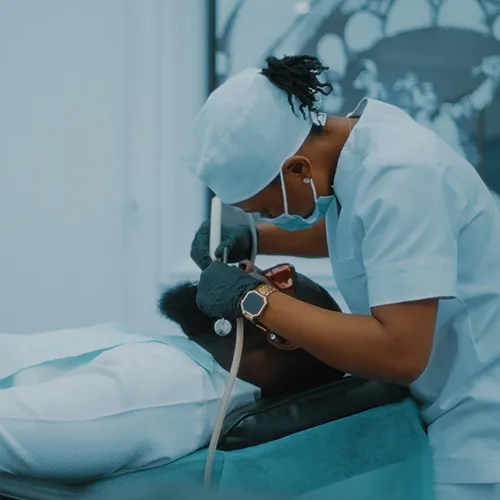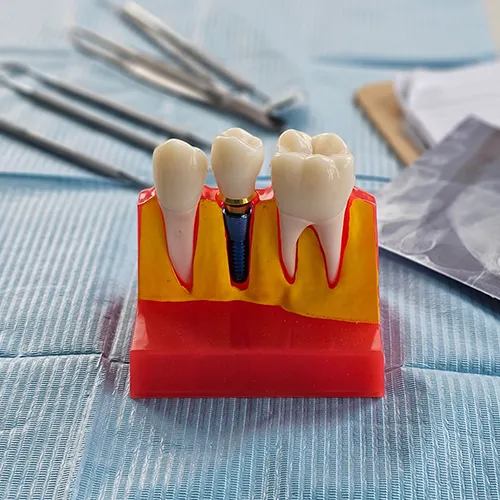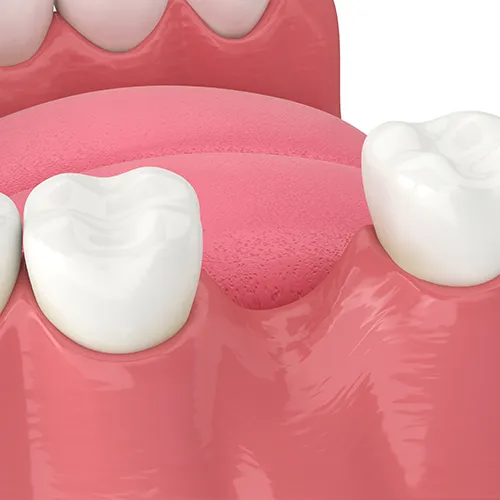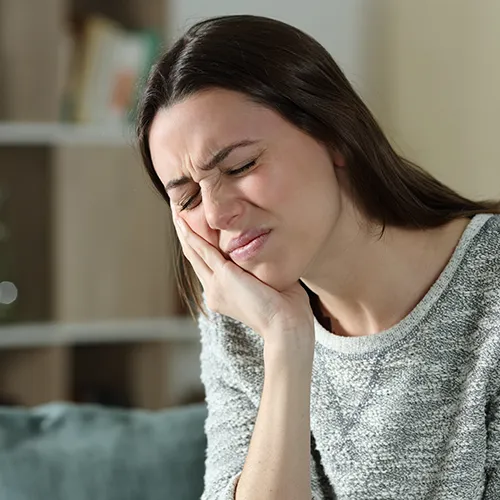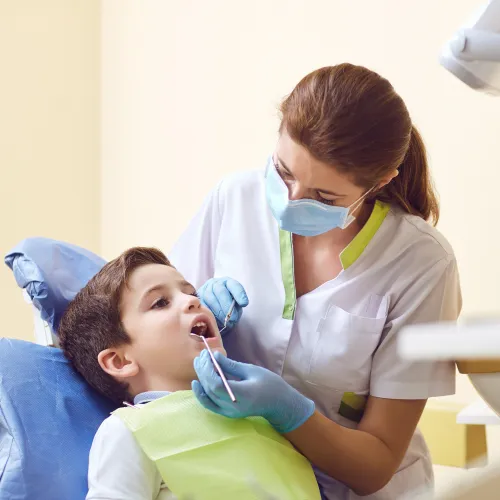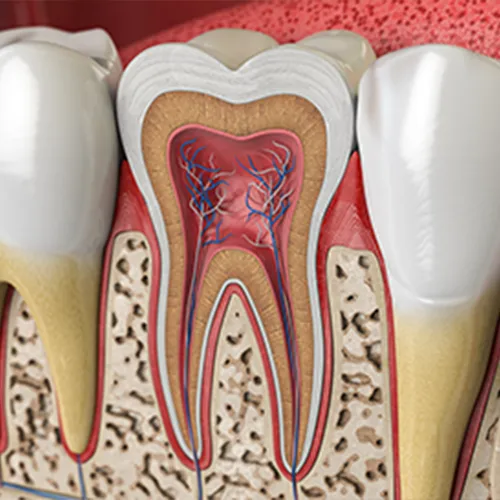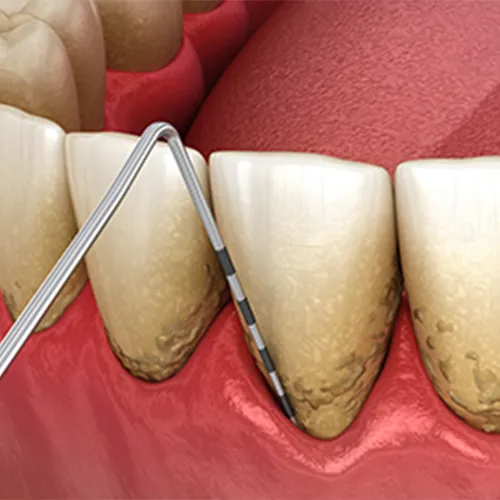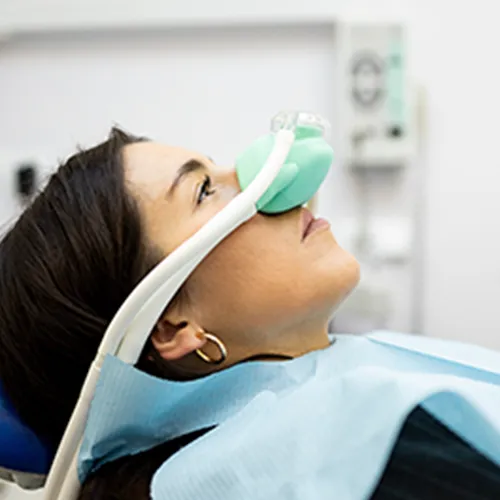Specialty Dentistry
Sleep Apnea Decoded: Unmasking Causes, Diagnosing Methods and Treatment Solutions
Everyone deserves a good night's sleep. It's more than just a respite from daily grind - it's essential for our physical health and mental wellbeing. But for those grappling with sleep apnea, quality sleep becomes an elusive dream.
Sleep apnea is a silent disruptor. It intrudes on your sleep, stealing away your rest without you even realizing it. Imagine you're diving deep into the ocean of sleep, and suddenly, you have to gasp for breath. Unsettling, isn't it? This experience is a nightly reality for sleep apnea sufferers.
Yet, despite the prevalence and serious health consequences, sleep apnea often goes undiagnosed. Why? Partly because many people aren't aware of it and partly because they underestimate its implications. This blog post aims to change that.
We'll delve into the causes of sleep apnea, discuss how it's diagnosed, and most importantly, reveal how it can be treated. As a leading dental clinic, we offer some of the most effective treatments for sleep apnea, and we are here to guide you towards restful, restorative sleep.
What Causes Sleep Apnea?
The Underlying Factors
Sleep apnea is a prevalent sleep disorder characterized by intermittent pauses in breathing during sleep. These pauses, known as "apneas," can last for a few seconds to minutes and occur many times per hour. They are usually followed by a snorting or choking sound as breathing resumes.
Before delving into the specifics, it's essential to understand that there are two primary types of sleep apnea: Obstructive Sleep Apnea (OSA) and Central Sleep Apnea (CSA). OSA, the most common, happens when the throat muscles relax excessively during sleep, obstructing the airway. CSA, less common, is a neurological issue where the brain momentarily fails to signal the muscles to breathe.
Understanding the type of sleep apnea is crucial since it influences the specific causes and treatments.
Common Causes of Obstructive Sleep Apnea
Several factors can increase the risk of OSA. Excess weight, for instance, is a leading cause as fat deposits around the upper airway can obstruct the breathing. Similarly, a narrow airway, either naturally or due to tonsils or adenoids, may cause apnea.
Lifestyle factors like smoking and alcohol consumption also contribute to OSA, as they can relax the muscles of the throat and induce inflammation, leading to a blockage. Age is another factor, with apnea more prevalent in older adults due to loss of muscle tone.
Central Sleep Apnea: The Less Common Culprit
While OSA relates to physical blockages, CSA is more about the brain's communication with the body. Conditions affecting this communication, such as heart disorders, stroke, and usage of certain medications like opioids, can lead to CSA.
How Do They Diagnose Sleep Apnea?
If you've ever been accused of snoring like a freight train or feel excessively tired even after a full night's sleep, you might be dealing with sleep apnea. But snoring and tiredness alone aren't definitive proof. Professional medical diagnosis is key to distinguishing sleep apnea from other sleep disorders.
Sleep Study: The Gold Standard for Diagnosis
The most reliable method to diagnose sleep apnea is a sleep study or polysomnography. This test records your brain waves, heart rate, breathing, oxygen levels, and eye and leg movements during sleep.
The study can be conducted in a sleep disorder center or at home with portable devices. If your results indicate sleep apnea, the severity (mild, moderate, or severe) is then determined based on the number of apneas you experience per hour.
How Can You Stop Sleep Apnea?
Sleep apnea, while complex and potentially dangerous, is not a sentence to a lifetime of disrupted sleep. There are various strategies and treatments available to manage and ultimately overcome this sleep disorder. Here, we explore a variety of these options in more detail.
Lifestyle Modifications
The first step towards stopping sleep apnea, particularly the obstructive type, usually involves changes to your lifestyle. These adjustments can significantly impact your sleep quality and overall health, acting as a foundation for more specific treatments.
Weight Management
Obesity is a primary risk factor for sleep apnea. Excess body weight, particularly around the neck, can constrict your airway and cause apnea events. Therefore, weight loss can significantly improve or even eliminate symptoms in overweight individuals.
Quitting Smoking
The chemicals in cigarette smoke cause inflammation and fluid retention in the upper airway, worsening sleep apnea. Therefore, quitting smoking can be a powerful step towards stopping sleep apnea.
Alcohol Moderation
Alcohol can relax the muscles in the back of your throat, making it easier for your airway to become blocked. Reducing your alcohol intake, especially before bedtime, can help manage sleep apnea symptoms.
Sleep Position
Sleeping on your back can cause your tongue and soft palate to collapse into your airway, leading to snoring and apnea events. To mitigate this, you can try sleeping on your side or stomach.
Dental Solutions: Oral Appliances
In our dental clinic, we offer a non-invasive solution that can dramatically improve sleep apnea: Oral appliances. These are especially effective for treating obstructive sleep apnea and snoring.
Mandibular Advancement Devices (MADs)
These resemble sports mouth guards and work by pushing the lower jaw and tongue forward, which increases the size of your upper airway and reduces its resistance. As a result, this reduces the chance of your airway becoming narrowed or blocked, helping you breathe easier and sleep better.
Tongue Retaining Devices
For patients who cannot adequately adjust to MADs, we offer tongue retaining devices. These appliances hold your tongue in place to keep your airway open, making it a suitable alternative for certain patients.
Continuous Positive Airway Pressure (CPAP)
The CPAP machine is often the go-to treatment for sleep apnea. It involves wearing a mask over your nose, or nose and mouth, during sleep. The mask is connected to a machine that delivers a continuous stream of air, keeping your airway open and preventing sleep apnea. It's proven effective in most patients who can adapt to it, drastically improving their sleep quality and reducing daytime sleepiness.
Surgical Solutions
In severe cases or when other treatments have been unsuccessful, surgery might be considered. Various surgical procedures can increase the size of your airway, thus reducing the potential for obstruction. Options include tissue removal, implants, jaw repositioning, or even nerve stimulation. These are typically last-resort solutions due to their potential for complications and variable success rates.
At our dental clinic, we're dedicated to providing a comprehensive range of solutions to treat sleep apnea. Our expert team is here to ensure that you get the restful, uninterrupted sleep you deserve. Don't let sleep apnea keep you up at night; book a consultation with us today, and let's work together towards better sleep and better health.



